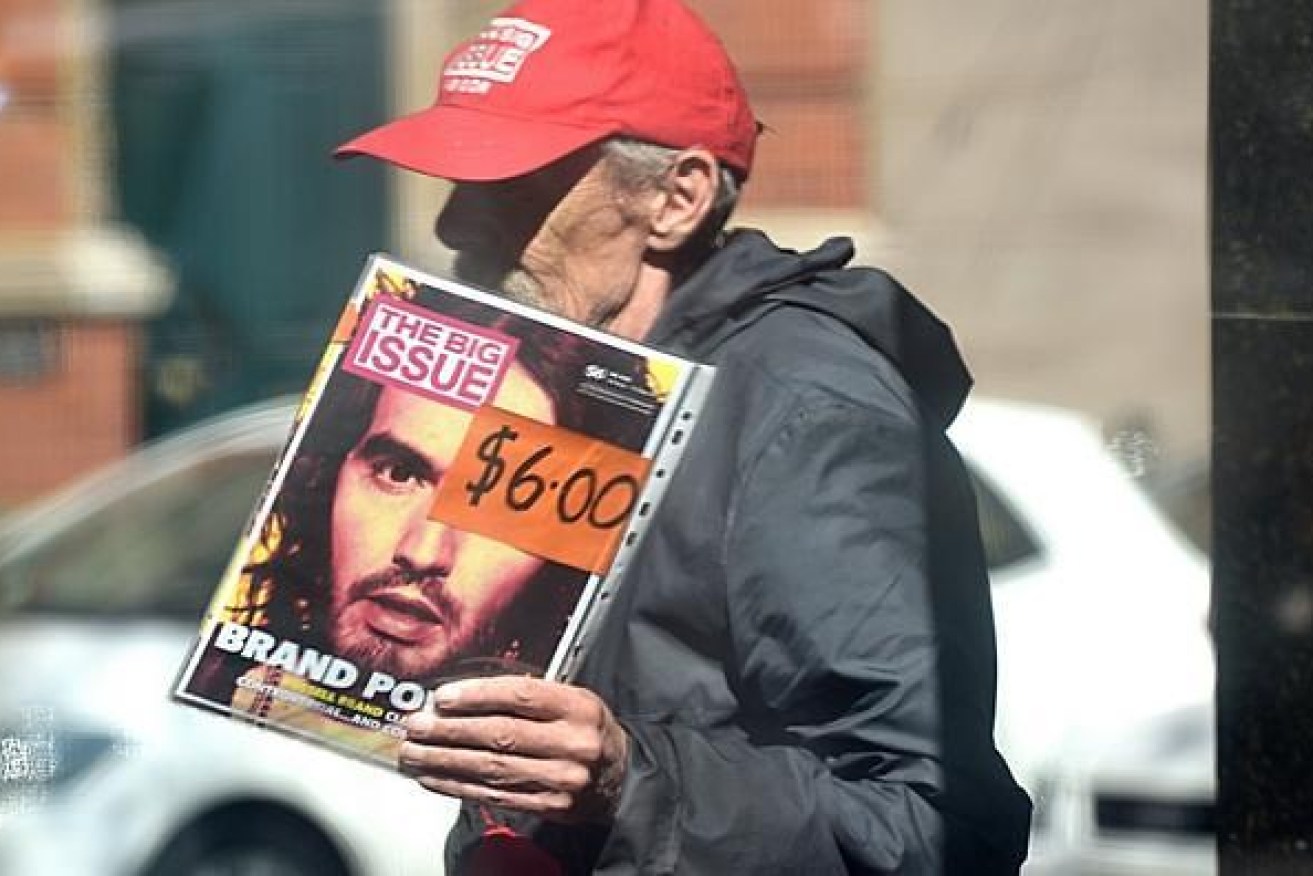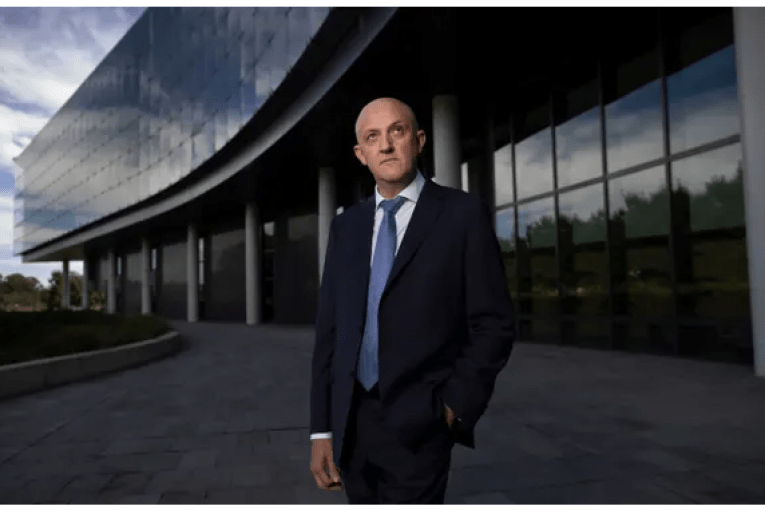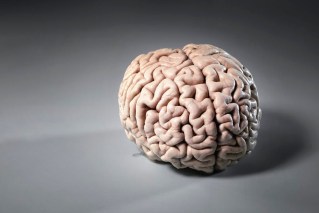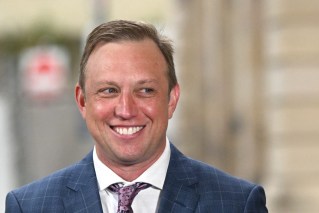Remember, there are worse things than being asked to stay in your own home
In National Homelessness Week, we can all feel thankful that we’re stuck in a pandemic-induced lockdown – and not something much worse, writes Michael Blucher


Behind every person on the streets there's a human story. (Image: SBS)
As talk of extended lockdown escalated, I couldn’t help but wonder how they were getting on. Those who are essentially in permanent lockdown. The homeless.
I see the same blokes every week – same place, doing much the same thing. Not very much.
Through what started out a few years ago as a “community service” project, I’ve gradually become familiar with some of their stories. Stories that typically stem from a mix of bad decisions, bad luck, and bad timing. Stories that remind us there’s often a very thin line between prosperity and poverty.
Robert (In the interests of privacy, I’m tinkering with names and locations) was well on the way to becoming an aeronautical engineer. That’s right – a rocket scientist.
But midway through his studies he had a monster barny with his girlfriend. They’d been drinking. A lot. He got in his car to go and get more alcohol. He went “DD”. A high range reading.
After he was charged, the police dropped Robert home. Now angry as well as still trolleyed, he immediately went back to get his car. He hadn’t finished drinking. Or arguing. He needed more supplies.
The police were waiting for him. Robert went DD again – twice in the space of four hours. Now he was in real trouble – he didn’t talk about how much, but I gather it wasn’t pretty. Perhaps even a little time in the big house. His tumultuous relationship ended abruptly. His family disowned him. He stopped studying, and started drinking. Heavily. He spiralled into depression. Or at least that’s what he labelled it.
Pretty soon, he had no money to pay his rent. He was living on the street. Future rocket scientist to seller of The Big Issue in less than nine months. A couple of bad turns, and you can finish up a long way from where you want to go.
Then there’s “Pat”. My wife and I often see him early on a Sunday, sitting in the sun on a bridge, while the dogs are taking us for a walk.
Pat must be in his early 70s. He doesn’t say much. I gather he’s ex-army. Our traumatised returned soldiers – there’s another whole can of worms right there.
We always stop and say hello. Pat likes to pat the dogs, to feel their soft ears. It’s difficult to imagine there’s a lot of other moments of softness in Pat’s life.
Before we move on, we always tuck a small-dollar note under one of the grubby, bulging bags Pat carries with him. He nods, but never speaks.
We wonder if Pat ever had a family – children – and if he did, where they’re living now. Do they know their father is sleeping under a bridge? Do they care? So many unanswered questions.
“Matthew” moved to Brisbane from country New South Wales, to distance himself from a charge of domestic violence. Like Robert, he and his ex-wife had “a massive blue” – she was chasing him through the house, trying to hit him with something heavy, and in the process of trying to escape, he slammed her arm in a door.
Or at least that’s Matthew’s version of events, but I’ve got no reason to believe it’s inaccurate – he’s usually calm and always articulate. On the surface, just like any other bloke fighting the honest fight. But as a result of the incident – and his wife’s injury – Matthew was issued with a DVO and instructed to stay away. No access to their six young children. When the youngest one saw him in town, and ran towards him, arms outstretched, crying “Daddy, Daddy”, he was charged with breaching the terms of the order.
As a warning, he was locked up for a short period, a stern sample of what would happen if he infringed again. Sure, Matthew’s telling the story. There may be another version of events. But remember, he’s calm and articulate.
Matthew can’t work, or even drive a car, because of the seizures. Some undiagnosed condition he has. He never knows when they’re coming. He can go weeks without having one, and then have three in the space of 18 hours. He blacks out – can’t remember a thing.
Not long ago, he woke up in the back of an ambulance. The officers had found him lying in the middle of a street in the CBD. No recollection of how he got there, or where he had been.
He needs to undergo further tests, but there’s a long waiting list. The Public Health system doesn’t really cater for people like Matt. There are other, far more pressing cases, occupying seats in hospital waiting rooms.
Back in May, as the winter chillIs approached, I asked Matthew if was there anything he needed to help him ward off the cold. “Nah pretty right – got a good sleeping bag,” he said stoically.
“What about a light thermal mattress,” I suggested.
“Yeah righto, that’d be good, thanks.”
For a short while, Matthew enjoyed his new, simple comfort, but a few weeks later when I passed him on his street corner, there was no sign of the rolled up green mattress.
“Where’s your bed gone?” I asked him.
“Some bastard flogged it while I was having a shower,” he told me.
At least somebody was using it, I thought to myself, suppressing my immediate – in hindsight, pathetic – sense of self indignation.
It had been a bad week for Matthew. Really bad. He’d also been bashed and robbed of his “stash” – all the money he’d squirrelled away over a few months of social security payments. Some $1300, gone in one short, sharp black act.
That explained the graze on his cheek and the gash on his chin that remained concealed until he turned his head.
“What – there’s no honour among thieves?” I asked him. “Nup. It’s tough on the streets. You fend for yourself. Nobody else is going to look after you,” he explained.
Matthew told me about his mate “Nate”, another homeless bloke who’d recently had his identity stolen.
Another “WHAT?” moment. “WTF? Why would anybody steal the identify of somebody who lived on the street?”
“The dole cheques – they’re pretending to be him and collecting his Centrelink payments. The cops couldn’t care. They’ve got better things to do than sort out a shit fight between a couple of hobos.”
His words, not mine.
Yes. It’s tough on the streets.
We don’t have to go too far, do we, to remind ourselves that there’s a lot for which we can be thankful?
Even in lockdown.












